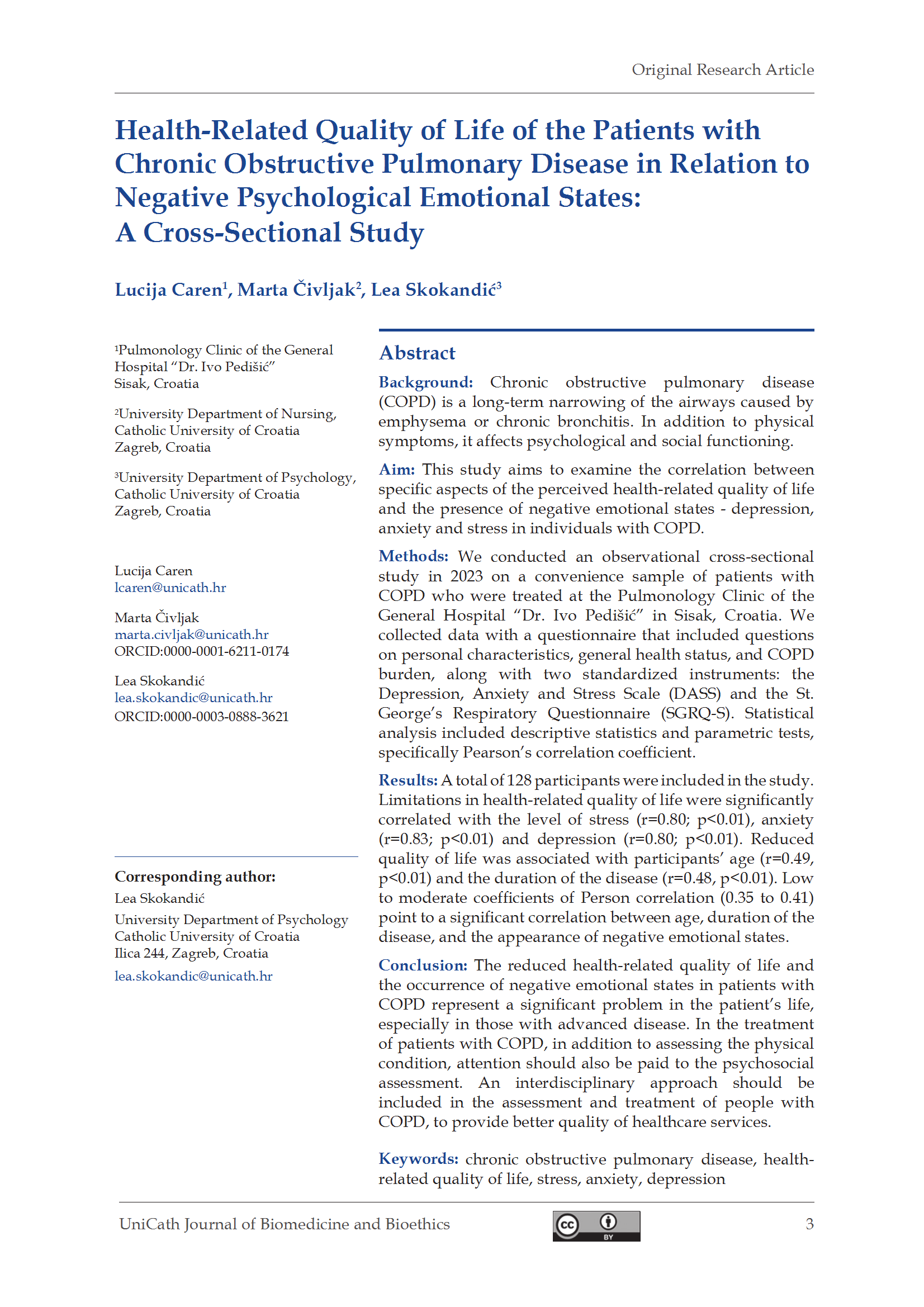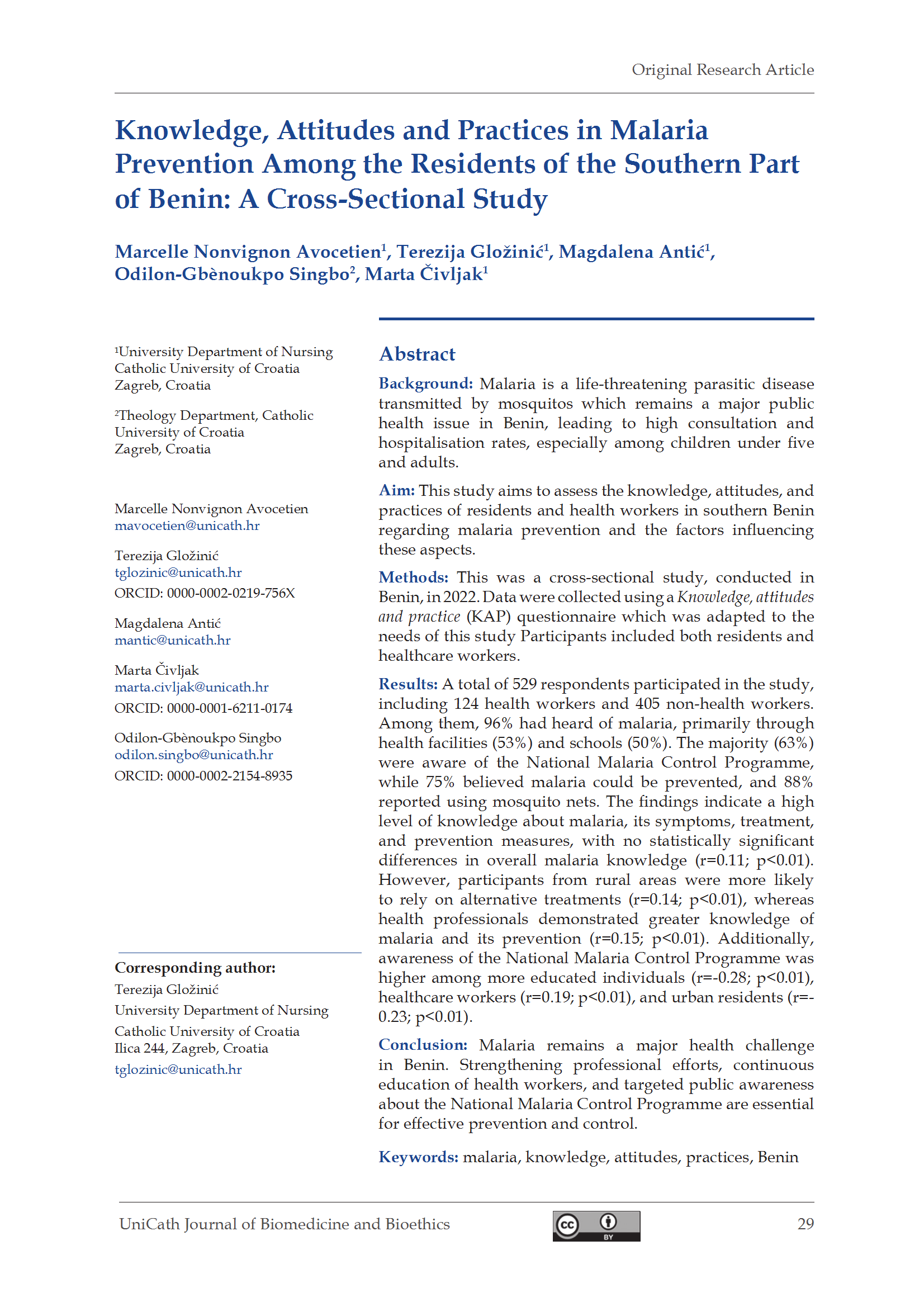Knowledge, Attitudes and Practices in Malaria Prevention Among the Residents of the Southern Part of Benin: A Cross-Sectional Study
Marcelle Nonvignon Avocetien, Terezija Gložinić, Magdalena Antić, Odilon-Gbènoukpo Singbo, Marta Čivljak
DOI: https://www.doi.org/10.64332/ujbb.25.1.4
Abstract
Background: Malaria is a life-threatening parasitic disease transmitted by mosquitos which remains a major public health issue in Benin, leading to high consultation and
hospitalisation rates, especially among children under five and adults.
Aim: This study aims to assess the knowledge, attitudes, and practices of residents and health workers in southern Benin regarding malaria prevention and the factors influencing these aspects.
Methods: This was a cross-sectional study, conducted in Benin, in 2022. Data were collected using a Knowledge, attitudes and practice (KAP) questionnaire which was adapted to the needs of this study Participants included both residents and healthcare workers.
Results: A total of 529 respondents participated in the study, including 124 health workers and 405 non-health workers. Among them, 96% had heard of malaria, primarily through health facilities (53%) and schools (50%). The majority (63%) were aware of the National Malaria Control Programme, while 75% believed malaria could be prevented, and 88% reported using mosquito nets. The findings indicate a high level of knowledge about malaria, its symptoms, treatment, and prevention measures, with no statistically significant differences in overall malaria knowledge (r=0.11; p<0.01). However, participants from rural areas were more likely to rely on alternative treatments (r=0.14; p<0.01), whereas health professionals demonstrated greater knowledge of malaria and its prevention (r=0.15; p<0.01). Additionally, awareness of the National Malaria Control Programme was higher among more educated individuals (r=-0.28; p<0.01), healthcare workers (r=0.19; p<0.01), and urban residents (r=- 0.23; p<0.01).
Conclusion: Malaria remains a major health challenge in Benin. Strengthening professional efforts, continuous education of health workers, and targeted public awareness about the National Malaria Control Programme are essential for effective prevention and control.
Keywords: malaria, knowledge, attitudes, practices, Benin

UniCath Journal of Biomedicine and Bioethics
Contact


